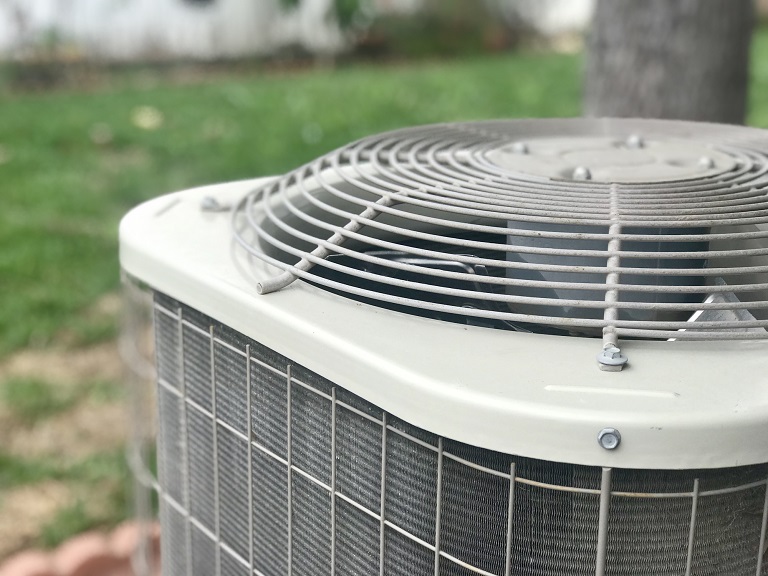
Factors such as labor and parts impact the final price of repairing a window AC unit. Learn all of the costs associated with window air conditioner repair.
Hire the best for better indoor air quality


Effective ductwork can result in substantial energy savings, and hiring a skilled contractor for any updates or repairs to your HVAC system is crucial. But who does ductwork? Specialized ductwork contractors or HVAC technicians are the top professionals to hire for this project. Here's what you need to know about hiring a pro to work on your home’s ducts.
Ductwork contractors bring specialized expertise and experience to ensure your HVAC system operates efficiently and safely. These focused professionals work with ductwork inside and out every day to deliver the best quality.
Below are a few key benefits of hiring a specialized ductwork contractor:
Access to professional equipment: Ductwork contractors use specialized ductwork tools and equipment, which are essential for a high-quality installation.
Improved energy efficiency: Properly sized and sealed ductwork enhances the efficiency of your HVAC system, reducing energy consumption and lowering utility bills.
Enhanced indoor air quality: Correct installation helps prevent air leaks and contamination, leading to better indoor air quality and a healthier living environment.
Regulation compliance: Contractors are familiar with building codes and industry standards to ensure your project meets all necessary regulations, including the duct cleaning guidelines set by the National Air Duct Cleaners Association.
Time and cost savings: Ductwork contractors have the tools and skills to complete the job efficiently, minimizing the risk of mistakes, delays, and costly repairs.
Warranty: Many contractors offer warranties or guarantees to provide assurance and protection against future issues.
Due to their complexity and potential risks, DIY ductwork projects are not the best option for homeowners. Ductwork installation requires precise measurements and a deep understanding of HVAC systems to ensure proper airflow and efficiency. Incorrectly sized or poorly sealed ducts can reduce the system's effectiveness and potentially increase energy bills. Improper installation can also cause uneven heating or cooling throughout the home, leading to discomfort and potential damage to the HVAC system over time.
DIY ductwork projects may not comply with local building codes or industry standards, creating safety hazards and leading to fees and penalties. Professional ductwork contractors have the expertise and tools to ensure ductwork is installed correctly and safely. They are familiar with the latest codes and regulations, which helps avoid costly mistakes or legal issues. While tackling ductwork as a DIY project might seem cost-effective, hiring a ductwork professional near you is more efficient, reliable, and cost-effective.
You can also hire an HVAC technician for your ductwork project. While both HVAC technicians and ductwork contractors work with duct systems, there are some differences. Ductwork contractors primarily focus on designing, installing, and repairing duct systems, while HVAC technicians have a broader skill set that includes maintaining and repairing the entire HVAC system.
Due to their broad expertise in heating, ventilation, and air conditioning systems, HVAC technicians understand how the ductwork integrates with the entire HVAC system, allowing them to optimize the system's performance and efficiency. They can assess and diagnose issues that may not be immediately apparent, such as airflow problems or inefficiencies caused by faulty components.
Ductwork contractors will start by speaking with you about your HVAC system’s needs. They’ll calculate the size and layout of your ductwork, note your vent placement, and consider any insulation and ventilation requirements.
Once the planning phase is complete, your contractor will move on to installing or replacing ductwork. This involves cutting and assembling the ductwork, ensuring each piece is properly sealed to prevent air leaks. Contractors use specialized tools and materials to connect and insulate the ductwork securely.
After installation, the contractor tests the system to make sure that it’s working properly and meets the necessary codes. They’ll also check for leaks and measure airflow. Once finished, they’ll give you some maintenance tips to ensure your system keeps running smoothly.

A good air duct contractor will be transparent about their qualifications and process, from their initial estimate to the final payment. Unfortunately, it's too common to fall victim to ductwork contractor scams. Before hiring a local ductwork contractor, ask the following questions:
What is your training and experience?
What are your HVAC certifications?
Can I see a copy of your license and liability insurance?
Can you provide references?
Are you experienced in this type of ductwork?
How long will the job take?
Do you charge an hourly or fixed rate?
What do you expect to be the overall cost, and how do you determine quotes?
What are your payment terms, and how do you handle changes to the estimate?
Does this work come with a warranty or guarantee?
From average costs to expert advice, get all the answers you need to get your job done.

Factors such as labor and parts impact the final price of repairing a window AC unit. Learn all of the costs associated with window air conditioner repair.

When your HVAC system is acting up, it could be the blower motor to blame. See how much blower motor replacement costs and what impacts the price here.

What you’ll pay in Columbus, OH, for furnace repairs depends on many factors. Here’s a breakdown of what can go wrong and the cost to fix those issues.

Explore the most common HVAC duct types, from flexible to sheet metal to fiberglass, and learn about their pros and cons.

Discover the average air handler replacement cost, including labor and materials, plus expert tips to help you budget and save on your HVAC upgrade.

Thinking about installing a heat pump in your home? Learn about the different types of heat pumps and the options you can choose from in this guide.